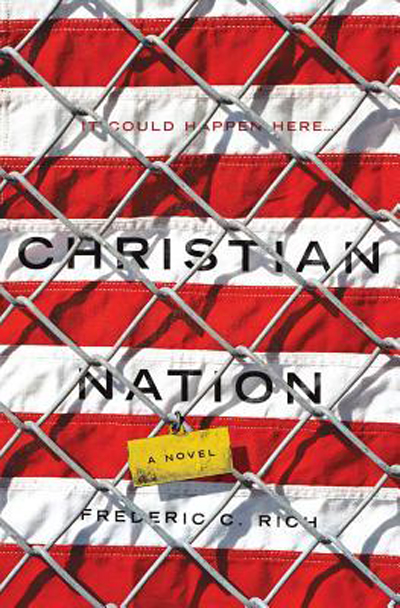BOOK GROUPS: QUESTIONS FOR DISCUSSION
1. How do Greg, Emilie, and Sanjay each react as the country takes small incremental steps toward theocracy? Why are their reactions different? If you were under the same circumstances, do you think you would react more like Greg, Emilie, or Sanjay?
2. Has your view of John McCain’s selection of Sarah Palin as his vice presidential candidate changed as a result of reading this book? If McCain/Palin had won and McCain had then died, what do you think would have happened to the country under a Palin presidency?
3. In the Christian Nation, authoritarian control is possible largely because web-linked cameras are everywhere and all reading, writing, and other communication are digital—making privacy or uncensored expression virtually impossible. The technology for this exists now. Does this worry you? Do you think it is a real threat?
4. Greg seems obsessed by the similarities between what happened in Germany in the 1930s and in America in the period leading up to the Holy War—mainly economic depression and a shock to national confidence. Do you find the similarities credible? Has something about the world changed since the twentieth century that now makes a populist embrace of fascist-type totalitarianism impossible? Or could it happen again?
5. What do you make of the relationship between Greg and Sanjay?
6. The author says that the public events occurring before election night 2008 are all historically accurate—such as legislation introduced in Congress seeking to end separation of church and state and allowing churches to use tax-exempt contributions for political activity, the channeling of billions of federal dollars to evangelical organizations, foreign policy decisions being influenced by evangelical beliefs regarding the “end times,” a federal ban on vital stem cell research for religious reasons, and U.S. troops being subjected to proselytization by evangelical chaplains. How many of these things were you aware of? If you didn’t know about these events, why do you think that is?
7. Do you believe that Greg’s memory of what happened is reliable? What parts of his story do you think might be suspect?
8. The long-standing agenda of the Christian right is finally realized with the adoption of “The Blessing.” When you read the text of “The Blessing”(pp. 180–85), how much of it do you agree with or disagree with? What about your friends or family who are conservative Christians—how many of these things do they think should be laws binding on all of us, whatever our religion? Have you ever discussed it with them?
9. Greg writes the memoir in a cabin overlooking a lake. He seems attracted by both water and stone, seeing ripples and reflections in the water. How does this setting affect him, and how does it affect your experience of the story?
10. At the end, Greg is looking out at the Hudson River, and Adam tells him that the Hudson is tidal, a river that flows both ways. Adam says that twice a day a hidden tide comes from the ocean and causes the river to flow upstream. What do you think he means? When Greg says he now understands, what do you think he means?
11. What do you think will happen next? Does the Free Minds movement have a chance? Does Greg have what it takes to be a leader?
